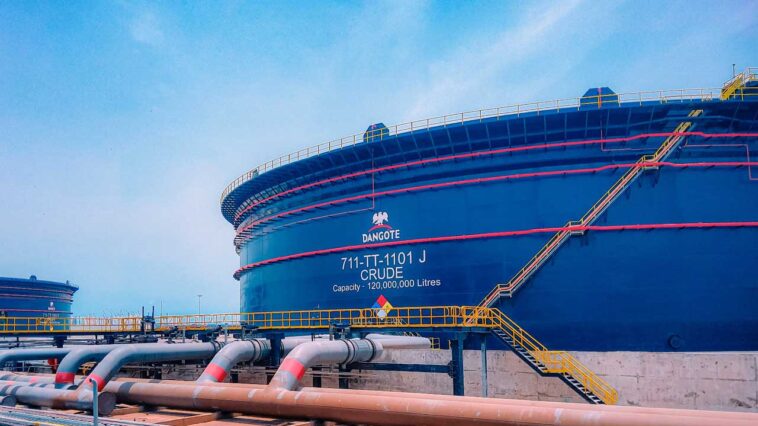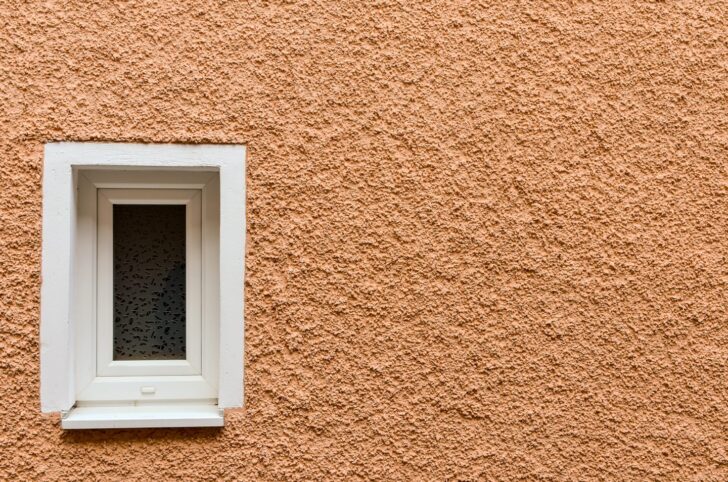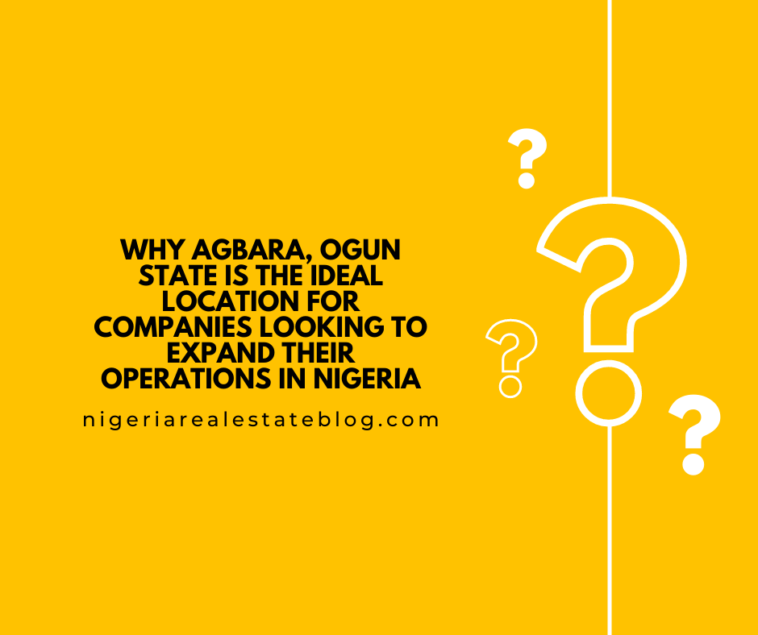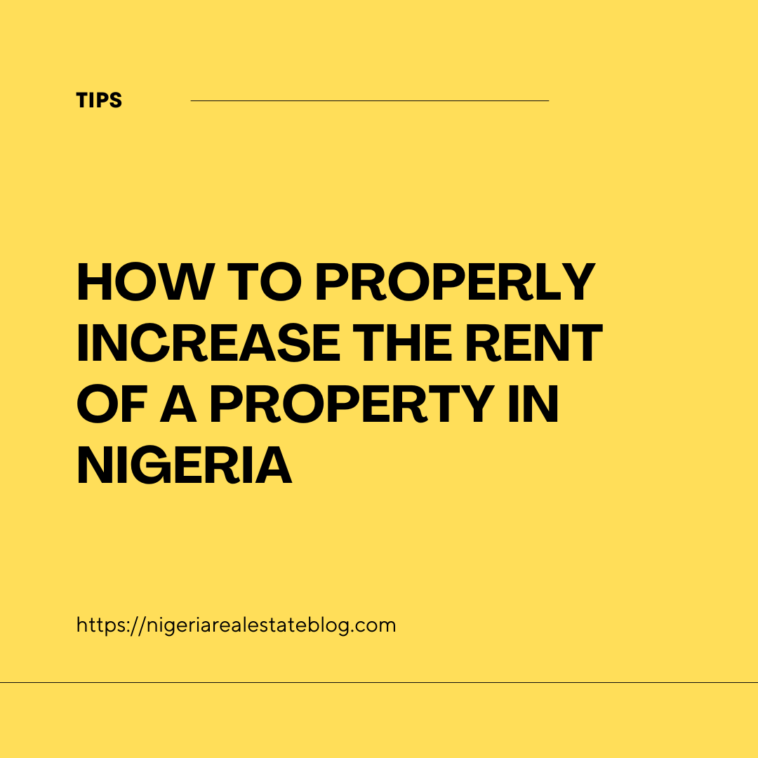CotenantNIG's Posts
Nairaland Forum / CotenantNIG's Profile / CotenantNIG's Posts
(1) (2) (3) (4) (5) (6) (7) (8) (9) (10) (of 32 pages)
Hi Guys i want to send some phones to my family members in Nigeria, what is the safest way I can go about it |
hello guys how can i get a cheap car insurance in the uk its either am rejected or its too expensive I have an international license My Job requires I have a car and a drivers license |
very nice 2 Likes |
thanks |
While the upcoming launch of the Dangote Petroleum Refinery presents significant economic opportunities and growth prospects, it is essential to consider the potential drawbacks of residing in close proximity to such a massive industrial facility. In this blog post, we will discuss some of the factors that make living near the refinery less advisable. Understanding these considerations can help individuals make informed decisions about their choice of residence and ensure their well-being and quality of life.  Environmental Impact: Living in close proximity to an operational refinery entails exposure to various environmental factors. Refineries emit air pollutants, including volatile organic compounds, particulate matter, and sulfur dioxide, which can have adverse effects on air quality. Prolonged exposure to these pollutants may lead to respiratory issues, allergies, and other health concerns. Additionally, refineries produce noise and vibrations that can disrupt the tranquility of nearby residential areas. Safety Concerns: Refineries involve complex processes and handling of hazardous materials. While every effort is made to maintain safety standards, the possibility of accidents cannot be entirely eliminated. Living in close proximity to a refinery increases the risk of exposure to potential accidents, such as fires, explosions, or chemical leaks. These incidents can pose immediate threats to life and property, emphasizing the importance of considering safety when choosing a residential location.| Traffic Congestion: The operation of a refinery necessitates transportation of raw materials and finished products, leading to increased traffic in the surrounding areas. Heavy trucks, cargo vehicles, and other industrial traffic can cause congestion on roadways, leading to longer commute times, noise pollution, and potential road safety concerns. Living near a refinery might mean dealing with frequent traffic disruptions, especially during peak operational periods. Limited Residential Amenities: Industrial facilities like refineries are primarily designed to support their operational needs, and as a result, residential amenities and services in the immediate vicinity may be limited. Essential facilities such as schools, healthcare centers, recreational areas, and shopping centers may not be as easily accessible as they would be in other residential areas. This lack of nearby amenities can inconvenience residents and require longer travel distances for daily necessities. Potential Property Depreciation: Living in proximity to an industrial facility, especially one as significant as the Dangote Refinery, may impact property values negatively. Some individuals may be reluctant to purchase or rent properties close to a refinery due to the aforementioned environmental and safety concerns. This reduced demand can potentially lead to lower property values and limited appreciation over time, affecting homeowners’ investment prospects. Conclusion: While the Dangote Refinery represents a remarkable advancement for Nigeria’s economy, it is essential to carefully consider the implications of living in close proximity to such an industrial facility. Factors such as environmental impact, safety concerns, increased traffic, limited residential amenities, and potential property depreciation should be taken into account when deciding on a residential location. Balancing the economic opportunities with personal well-being and quality of life is crucial. Individuals must evaluate their priorities, assess the potential risks and drawbacks, and make informed choices that align with their needs and preferences. https://nigeriarealestateblog.com/considerations-living-in-close-proximity-to-the-dangote-refinery/ |
Thanks for reading |
Painting your home can be a great way to refresh the look of your space and give it a new lease on life. With so many types of paint available, it can be overwhelming to decide which one is right for your project. In this post, we’ll go over some of the most common types of paint used for house painting. Latex Paint Latex paint, also known as acrylic paint, is a popular choice for house painting. It’s water-based, dries quickly, and is easy to clean up with soap and water. Latex paint is also durable and resistant to fading and cracking, making it a great choice for high-traffic areas. It’s available in a wide range of colors and finishes, from flat to high-gloss.  Oil-Based Paint Oil-based paint is made with oil, typically linseed oil. It dries more slowly than latex paint, but it’s durable and has good adhesion to surfaces. Oil-based paint is especially well-suited for surfaces that are exposed to high moisture or temperature fluctuations. However, it’s more difficult to clean up and can emit strong fumes during application.  Enamel Paint Enamel paint is a durable and glossy finish that’s often used for trim, doors, and cabinets. It’s available in both oil-based and water-based formulas. Enamel paint is a good choice for surfaces that require extra protection, such as high-traffic areas or those that are exposed to moisture or grease.  Textured Paint Textured paint is a type of paint that can be used to create a variety of effects, including stucco, stone, and plaster. It’s often used to add visual interest to walls and ceilings. Textured paint can also help hide imperfections in a surface. However, it can be more difficult to apply than regular paint, and it may require special tools or techniques.  Primer Primer is a type of paint that’s applied before the topcoat to help the paint adhere better and to create a more even surface. It’s especially important when painting over a surface that’s porous or has been previously painted. Primer can also help seal in stains or other imperfections in a surface.  Chalk Paint Chalk paint is a popular type of paint for furniture and decor. It has a matte finish and can be distressed to create a vintage or shabby chic look. Chalk paint is easy to use, as it doesn’t require sanding or priming before application. It’s also available in a variety of colors and can be mixed to create custom shades.  In conclusion, there are many types of paint available for house painting, each with its own advantages and disadvantages. The best type of paint for your project will depend on factors such as the surface you’re painting, the look you want to achieve, and the level of durability required. With a little research and some experimentation, you’re sure to find the perfect paint for your home! https://nigeriarealestateblog.com/exploring-the-different-types-of-paint-for-house-painting/ cc: HonNL 1 Like |
lalasticlala mynd44 Seun |
Government Programs and Initiatives to Make Mortgage Financing More Accessible and Affordable in Nigeria Owning a home is a dream for many Nigerians, but the cost of purchasing or building a house can be a significant barrier to achieving this dream. To make mortgage financing more accessible and affordable, the Nigerian government has implemented various programs and initiatives. These programs aim to provide Nigerians with access to affordable mortgage loans, reduce the cost of building and buying homes, and increase the number of homeowners in the country. In this article, we will take a closer look at some of the government programs and initiatives that have been introduced to make mortgage financing more accessible and affordable to Nigerians. National Housing Fund (NHF) The National Housing Fund (NHF) was established in 1992 by the Federal Government of Nigeria as a source of financing for the provision of affordable housing in the country. The NHF is funded by a 2.5% deduction from the monthly salary of Nigerian workers who earn at least ₦3,000 per month, and contributions from the Federal Government. The NHF provides affordable mortgage loans to Nigerians at a maximum interest rate of 6% per annum. The maximum amount that can be borrowed under the NHF is ₦15 million, and the loan can be repaid over a period of up to 30 years. The NHF is administered by the Federal Mortgage Bank of Nigeria (FMBN). Family Homes Funds The Family Homes Funds is a social housing initiative of the Federal Government of Nigeria aimed at providing affordable housing for low-income earners and those who cannot afford to buy or build their own homes. The Family Homes Funds was launched in 2017 with a target of providing 500,000 affordable homes by 2023. The initiative is funded by the Federal Government, the Central Bank of Nigeria (CBN), and the private sector. The Family Homes Funds partners with developers to build homes and offers mortgage loans to Nigerians at affordable rates. Mortgage Refinance Company (MRC) The Mortgage Refinance Company (MRC) was established in 2013 to provide long-term funding and liquidity to mortgage lenders in Nigeria. The MRC provides mortgage refinancing to mortgage lenders, which enables them to offer affordable mortgage loans to Nigerians. The MRC provides long-term funding to mortgage lenders at a fixed interest rate, which helps to reduce the cost of borrowing for Nigerians. The MRC also works with the Federal Government and other stakeholders to develop policies and initiatives aimed at improving the mortgage industry in Nigeria. The Federal Government Social Housing Scheme The Federal Government Social Housing Scheme is a program aimed at providing affordable housing for low-income earners and those who cannot afford to buy or build their own homes. The program was launched in 2020 with a target of providing 300,000 affordable homes across the country. Under the program, the Federal Government partners with developers to build homes and offers mortgage loans to Nigerians at affordable rates. The program also provides grants to developers to reduce the cost of construction and make the homes more affordable. Conclusion The Nigerian government has introduced various programs and initiatives to make mortgage financing more accessible and affordable to Nigerians. These programs aim to provide affordable mortgage loans, reduce the cost of building and buying homes, and increase the number of homeowners in the country. While these programs have made progress in improving access to affordable housing, there is still more work to be done to ensure that every Nigerian has access to safe, decent, and affordable housing. https://nigeriarealestateblog.com/government-programs-and-initiatives-to-increase-homeownership-in-nigeria-a-comprehensive-review/ |
lalasticlala Mynd44 Seun |
Agbara is a bustling town located in Ogun State, Nigeria. The town has been gaining attention from local and international investors in recent years due to its strategic location and investment-friendly environment. Companies that are looking to expand their manufacturing operations should consider building factories in Agbara. In this article, we will explore the reasons why companies should build factories in Agbara, Ogun State.  Access to Major Markets: Agbara is located close to major markets in Lagos, Nigeria's economic capital. The town is just a few minutes' drive from Lagos, making it an ideal location for companies looking to expand their operations in the West African region. Companies that build factories in Agbara can easily access the Lagos market, which has a population of over 20 million people. Proximity to Ports: Agbara is located close to the Lagos seaports, making it an ideal location for companies that import raw materials and export finished products. Companies that build factories in Agbara can easily transport their goods to the seaports for shipment to other countries. This will reduce transportation costs and increase the speed of delivery, which is essential in the manufacturing industry. Investment-Friendly Environment: The Ogun State government has been working to create an investment-friendly environment in Agbara. The town is home to several industrial parks that offer tax incentives, infrastructure, and other benefits to companies that build factories in the area. The government has also been investing in road construction, electricity, and water supply to attract more investors to the area. Skilled Workforce: Agbara has a large pool of skilled and semi-skilled workers that are available for employment. The town is home to several technical and vocational schools that train students in various skills such as welding, electrical engineering, and mechanical engineering. Companies that build factories in Agbara can easily recruit skilled workers from the town, reducing the cost of training and hiring. Low Cost of Living: The cost of living in Agbara is relatively low compared to other industrial towns in Nigeria. The town has affordable housing, transportation, and food, which makes it an ideal location for companies that want to reduce their operational costs. Companies that build factories in Agbara can save money on housing and transportation allowances for their workers, which can be redirected towards other areas of the business. Availability of Raw Materials: Agbara is located in a region that is rich in natural resources. The town is surrounded by several mineral deposits, including limestone, clay, and kaolin. Companies that build factories in Agbara can easily access these raw materials, reducing the cost of production and increasing profitability. In conclusion, Agbara is an ideal location for companies that are looking to expand their manufacturing operations. The town offers several benefits, including access to major markets, proximity to ports, investment-friendly environment, skilled workforce, low cost of living, and availability of raw materials. Companies that build factories in Agbara will have a competitive advantage in the West African region and can expect to grow their businesses significantly. https://nigeriarealestateblog.com/why-agbara-ogun-state-is-the-ideal-location-for-companies-looking-to-expand-their-operations-in-nigeria/ |
lalasticlala |
The retail real estate market in Nigeria has experienced significant growth in recent years, driven by a growing middle class, urbanization, and increasing consumer spending. This growth has been spurred by a number of factors, including the expansion of international brands into the Nigerian market, the rise of e-commerce, and the growing demand for modern retail facilities in the country. One of the key drivers of this growth has been the increasing number of international brands entering the Nigerian market. In recent years, many leading international retailers, including Shoprite, Spar, and Walmart, have established a presence in Nigeria, attracted by the country’s large population and growing consumer base. This has led to increased competition in the retail sector and a growing demand for modern retail facilities, such as malls and shopping centers. Another factor driving the growth of the retail real estate market in Nigeria has been the rise of e-commerce. While traditional brick-and-mortar retail remains dominant in Nigeria, the growing popularity of online shopping has led to an increase in demand for modern retail facilities that can accommodate both online and offline shopping experiences. This has led to the development of modern, technology-enabled retail spaces that offer consumers a range of shopping options. In addition to these factors, the growth of the retail real estate market in Nigeria has also been driven by the increasing demand for modern retail facilities in the country’s urban areas. With Nigeria’s population becoming increasingly urbanized, there has been a growing demand for modern retail facilities that can cater to the needs of urban consumers. This has led to the development of a number of new malls and shopping centers in major cities such as Lagos, Abuja, and Port Harcourt. Looking ahead, the growth of the retail real estate market in Nigeria is expected to continue, driven by a range of factors including continued urbanization, rising consumer spending, and the increasing popularity of e-commerce. However, the sector also faces a number of challenges, including high land and construction costs, regulatory hurdles, and the need to adapt to changing consumer preferences and behavior. In order to succeed in this dynamic market, real estate developers and retailers must be innovative, flexible, and responsive to changing consumer demands. By investing in modern, technology-enabled retail spaces that offer a range of shopping options, and by adapting to the changing needs of urban consumers, developers and retailers can capitalize on the significant growth opportunities presented by the Nigerian retail real estate market. https://nigeriarealestateblog.com/the-growth-of-the-retail-real-estate-market-in-nigeria/ |
Thanks for reading |
 There is no law that spells out when and how to increase rent in Nigeria. What the law frowns at is arbitrary increase in rent. There are however some rules or best practices guiding rent increase. First is that the rent should not be more than 50% of the current rent. A rent increase more than 50% of the current rent is generally seen as arbitrary while a rent increase less than 50% of the current rent is generally seen as acceptable. So if a rent is 300,000 naira per annum for example, the highest acceptable increase is to 450,000 naira per annum. An increase from 300,000 naira to 500,000 naira will be seen as an excessive increase in rent. Second is that the rent should be increased every two to three years. Rent should not be increased every year as it will be seen as an excessive increase. Likewise, a rent should not be retained for a long period of time as there are often difficulties to increase the rent from the previous rent to the current market rate of the rent. An increase from 300,000 naira to 350,000 naira after two years, and from 350,000 naira to 400,000 after another two years will be better received by the tenant than from 300,000 to 500,000 after 5 years. Therefore, a periodic gradual increase of rent is advised Third is that there must be sufficient notice for the increase in rent. The notice for increase in rent should come in at least six (6) months to the end of the current tenancy period to give the tenant sufficient notice of the increase of the rent. Giving the tenant one month notice or a few days notice before the termination of the current tenancy is not a good practice. Sufficient notice is advised to give the tenant enough time to plan to pay the increase in the rent or to look for another property. https://nigeriarealestateblog.com/how-to-properly-increase-the-rent-of-a-property-in-nigeria/ lalasticlala Mynd44 Seun 1 Like |
Lalasticlala 1 Like 3 Shares |
Mirra00: Thanks 1 Like 1 Share |
Follow us on Twitter to get more updates https://twitter.com/NigEstateBlog |
If you plan to get an apartment between now and march 2023 this list would help you https://nigeriarealestateblog.com/cost-of-renting-a-1-bedroom-apartment-in-lagos-2022/ 28 Likes 3 Shares |
cotenant 1 Like |
(1) (2) (3) (4) (5) (6) (7) (8) (9) (10) (of 32 pages)
(Go Up)
| Sections: politics (1) business autos (1) jobs (1) career education (1) romance computers phones travel sports fashion health religion celebs tv-movies music-radio literature webmasters programming techmarket Links: (1) (2) (3) (4) (5) (6) (7) (8) (9) (10) Nairaland - Copyright © 2005 - 2024 Oluwaseun Osewa. All rights reserved. See How To Advertise. 65 |